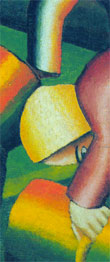|
History engages in the study of the past and
constitutes a branch of the Social Sciences. The study of the past
is far more complicated than it appears at first glance, and
especially in comparison to the view shared by most students of
secondary education and society at large. The prevailing notion
regarding history is that it comprises a unit of stable
understandings about the past to which one can recurrently resort. A
more common version of this notion views history as a diachronic
body of information concerning events, dates of episodes,
successions of imperial, monarchical or political governments,
battles, etc. This notion devalues both the systematic efforts to
recapture the past, to the extent that this is feasible, and the
rich methodological and theoretical concerns raised by historians in
Greece and internationally. Studies in history are not simply
connected with the recycling of already known events, but with the
broadening of historical thought with regard to what exactly
constitutes the past.
In this context, the past is approached as a problem rather than a
clearly defined source of knowledge. Since the introduction and
establishment of social history, which has countered older paradigms
of historical research focusing on the investigation of ''major
historical incidents'' and eminent personae, the discussion about
the past and history is constantly enriched; as a result of this
trend the field of Historical Studies is presently preoccupied with
issues such as the history of gender, cultural history, textual
practices in the production of historical narratives, etc.
Historicizing, attempting to understand phenomena in their temporal
context, investigating the notions of change and continuity in
historical time constitute today important directions of historical
research. At the same time, there is a growing recognition of the
importance of the uses made of the past into the present; that is,
the ways in which specific societies reinterpret the past,
negatively or positively, and use it in the context of their own
era, often temporally very distant from the past they evoke.
Although there is no consensus among historians on epistemological
issues (such as the ideal of objectivity, the possibility of a
complete and final reconstruction of the past, the need for
interdisciplinary work, etc.) or on the priorities of historical
research (such as the emphasis on the long or short-term temporal
span, the shift to social history away from the more traditional
preference in diplomatic history, etc.) debates within the
historical community are exceptionally rich and the outcomes of
historical research have influenced other related disciplines in
many ways.
Historical Studies at the Department of Social
Anthropology and History are influenced by these concerns and
constantly adjust to new developments in historical research.
Distancing itself from a "Helleno-centric" view of Historical
Studies, which has dominated Greek academia and continues to prevail
today in many programs, this Department has proposed a rich
up-to-date and rich program which aims to treat both general and
particular subjects.
The organization of these studies is based on two interrelated
levels. The first concerns general courses which cover time periods
of varying length and focus on the history of specific places. At
this level, taught courses include Modern and Contemporary European
History, Modern and Contemporary Greek History, History of the
Ancient World, Ottoman History, etc. These courses are distributed,
according to degree of difficulty, throughout the four years. They
aim at providing knowledge, acquainting students with historical
subjects and enhancing their critical thinking.
The second level of the Historical Studies program pertains to more
specialized courses dealing with themes such as the History of
Mentalities, Nationalism, the Urban Phenomenon, Colonialism,
Historical Demography, The History of Landscape, Slavery in Ancient
Times, etc. Through these courses students acquaint themselves with
the emerging historical orientation, but they also come into contact
with sources pertinent to these subjects of study. The Department
believes that with its history courses it places an up-to-date and
flexible distinctive mark on Historical Studies and the direction
they should follow. Moreover, in the Department provisions have been
made for a dialogue between historical and anthropological courses,
thus offering students a complete rather than fragmentary view of
the interaction between the past and the present.
|

